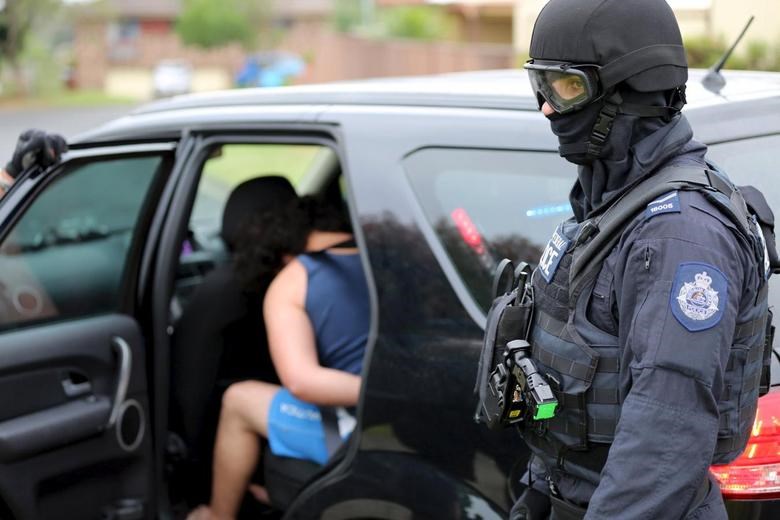NSW police taser 95 y/o woman with dementia in care facility
Local media claims that the old woman was tasered after police found her Wednesday morning walking around with a knife in her hand.
-

Heavily armed police officers detain a man during early morning raids in western Sydney, Australia, December 10, 2015, in this handout courtesy of New South Wales (NSW) Police. (Reuters)
A 95-year-old woman with dementia was tasered by police in New South Wales at a senior care facility and remains in the Cooma district hospital with a suspected fractured skull and "brain bleed".
A critical incident investigation into the matter has been launched at Cooma’s Yallambee Lodge, with police stating that it took place "after an elderly woman sustained injuries during an interaction with police at an aged care facility in the state’s south today... A critical incident team will now investigate the circumstances surrounding the incident.”
The 40-bed facility is designed for “people who can no longer look after themselves in their own home”.
With permission from the woman’s family, Andrew Thaler, who ran as an independent candidate for Eden-Monaro spoke to Guardian Australia and claims she was tasered on Wednesday after she was walking around with a knife in her hand.
Read next: Sydney jeweler accused of planning own shop's heist for insurance
“That’s somehow resulted in the police tasering this woman twice, once in front of her chest, and once in the back, then she’s fallen and struck her head,” Thaler stated, adding "the family are grieving because they don’t expect their nan to make it through the day, or tomorrow at the latest".
The President of the NSW Council for Civil Liberties, Josh Pallas, urged police to stop using tasers on vulnerable individuals in light of the incident.
“Police overreach and disproportionality are common themes we see repeating over multiple incidents in NSW,” Pallas revealed, adding that there are "more appropriate ways to deal with non-compliant people who are suffering.”
In February, the Law Enforcement Conduct Commission examined 210 incidents involving the use of force by NSW police in the time frame between May 2020 and May 2021, and showed that tasers were used during 16 of these incidents, adding that this was “relatively infrequently”.

 2 Min Read
2 Min Read








